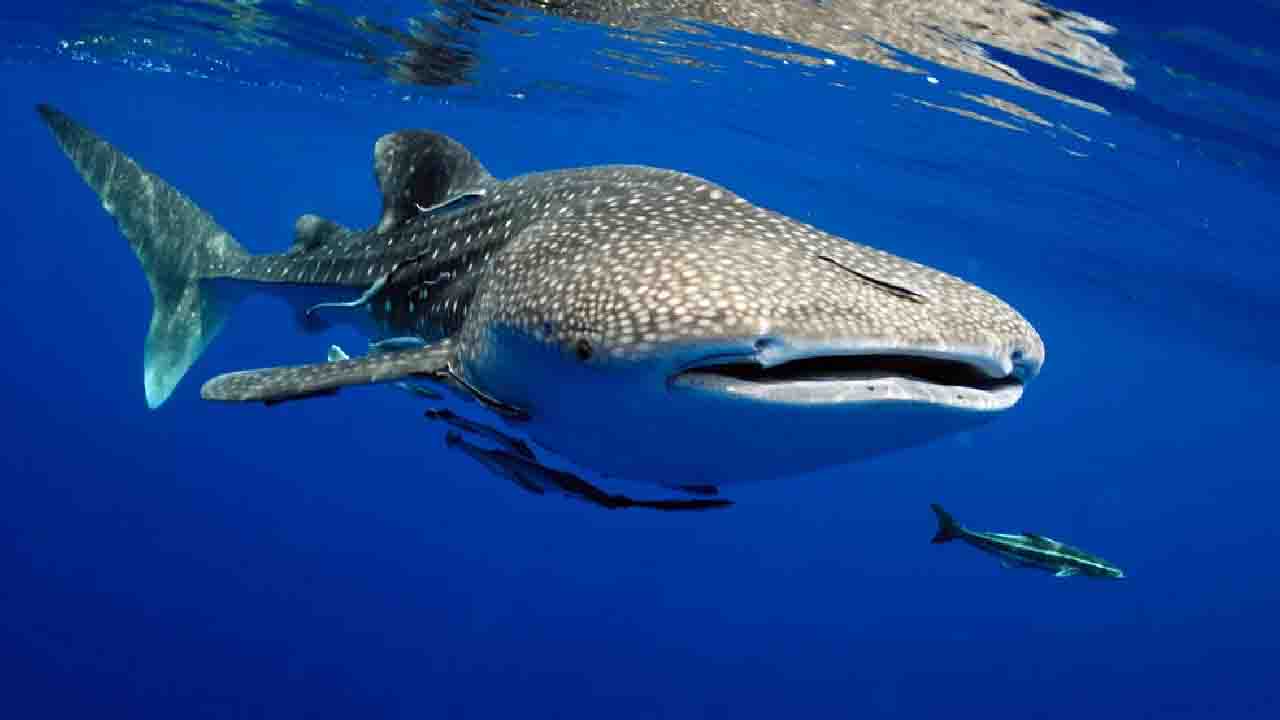By Wasana Nadeeshani Sellahewa
(Commonwealth) _ Marine researchers from the Marine Biological Association (MBA) and the University of Southampton have performed groundbreaking study that suggests deadly collisions of whale sharks with large ships are largely underappreciated and may be the cause of population declines. Whale shark populations have been falling in numerous regions in recent years, although it is unclear why. Because whale sharks spend a significant amount of time in surface waters and congregate in coastal areas, researchers hypothesized that ship crashes may be causing significant whale shark mortality; however, there was previously no mechanism to monitor this hazard.
The Global Shark Movement Project, conducted by experts from 50 worldwide research organizations and universities, was aimed at studying the movements of whale sharks and ships throughout the world to identify potential collision sites. The project was conducted by researchers from the Marine Biological Association (MBA), a UK-based research organization, and it received satellite tracking data from over 350 whale sharks.
The researchers used the satellite tracking data to map the movements of whale sharks and to identify areas where they were most likely to be at risk of collisions with ships. The study found that whale sharks frequently cross shipping lanes in the Atlantic, Indian, and Pacific oceans, putting them at risk of collisions with large vessels. The researchers also found that the risk of collision was particularly high in areas where shipping lanes overlapped with whale shark feeding and breeding grounds. This is especially concerning as whale sharks are slow-moving and often feed close to the surface, making them more vulnerable to collisions with ships.
The study has provided valuable insights into the movements of whale sharks and the risks they face from ship strikes. It has highlighted the need for urgent action to protect these endangered species from this threat. The data collected by the project can be used to develop management strategies to reduce the risk of collisions between whale sharks and ships, which can help to preserve this magnificent species for future generations. The scientists plotted shark ‘hotspots’ that corresponded with worldwide fleets of cargo, tanker, passenger, and fishing vessels the sorts of big ships capable of striking and killing a whale shark to demonstrate that shipping activity accounted for more than 90% of whale shark movements. Whale sharks are slow-moving ocean monsters that may grow to be 20m long and feed on small organisms known as zooplankton.
Whale sharks play a crucial part in the marine food chain and healthy ocean ecosystems by helping to manage plankton levels in the ocean. “Incredibly, some of the tags recording depth as well as location showed whale sharks moving into shipping lanes and then sinking slowly to the seafloor hundreds of meters below, which is the’smoking gun’ of a lethal ship strike,” said Professor David Sims, Senior Research Fellow at the MBA and University of Southampton and founder of the Global Shark Movement Project.
Whale sharks are the largest fish in the world and are considered an endangered species due to various threats such as habitat degradation, overfishing, and ship strikes. Ship strikes have been identified as a significant threat to the survival of whale sharks, especially in regions where shipping lanes overlap with whale shark habitats. The research team has found that there are currently no international regulations in place to protect whale sharks from ship collisions. This lack of protection means that the species is at risk of further population declines and potential extinction in the future.
The study emphasizes the need for immediate action to protect whale sharks from ship strikes. The researchers suggest that management strategies need to be put in place to reduce the risk of collisions between whale sharks and ships. These strategies could include creating alternative shipping lanes, reducing ship speeds in areas where whale sharks are known to congregate, and improving monitoring and reporting of whale shark sightings. The researchers also highlight the need for collaboration between countries and stakeholders to develop effective conservation strategies for whale sharks. This includes working with shipping companies to raise awareness of the issue and encourage them to take measures to reduce the risk of ship strikes. The study emphasizes the urgent need for action to protect whale sharks from the threat of ship strikes. Without effective measures, the future of this magnificent species is uncertain, and the loss of whale sharks would have significant ecological and economic impacts on marine ecosystems and communities around the world.








